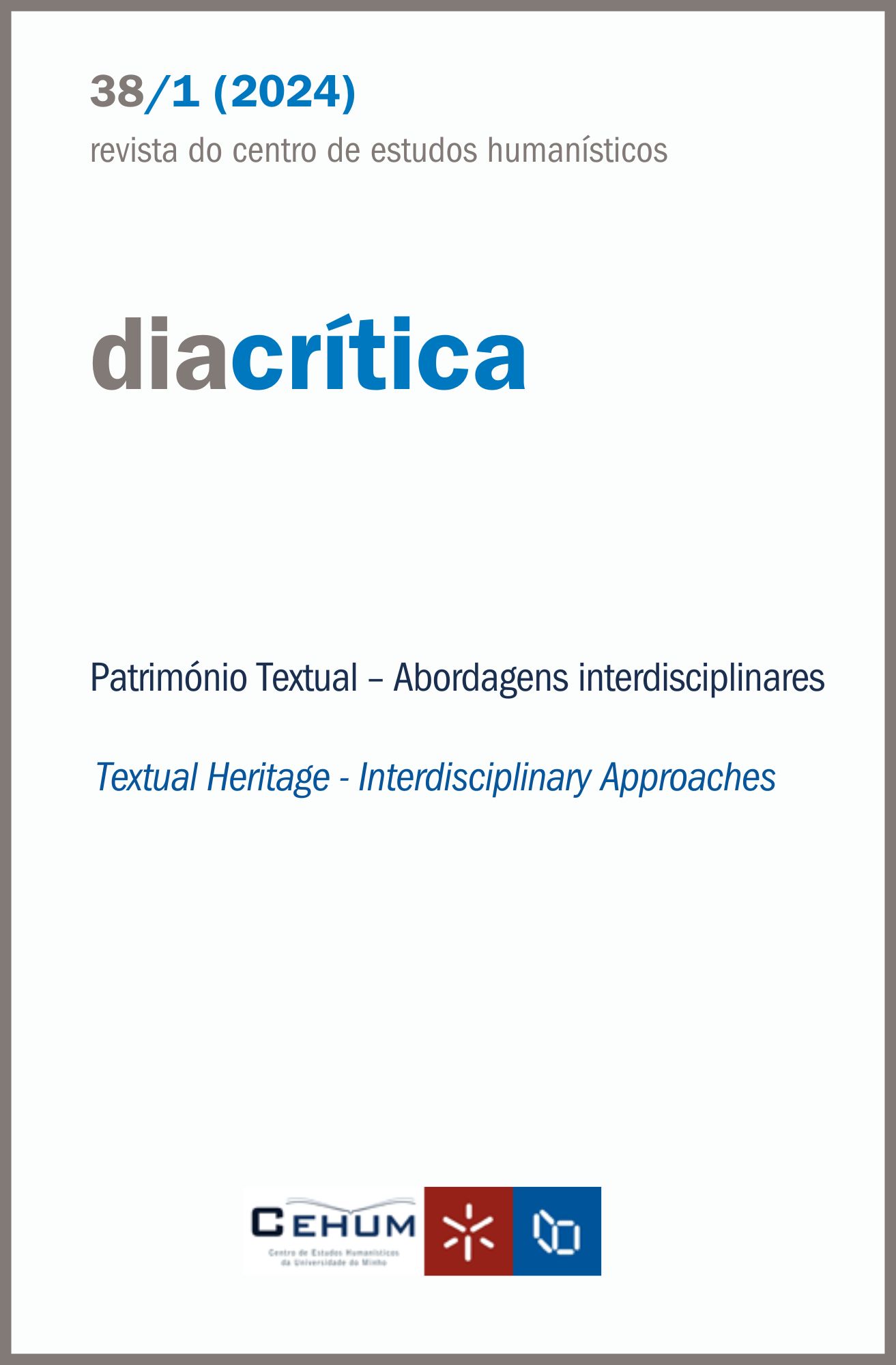Whitman's Democratic Citizen
DOI:
https://doi.org/10.21814/diacritica.5660Keywords:
Whitman., America, Democracy, Citizen, GrantAbstract
In 1858 a series of essays titled Manly Health and Training made their appearance in the New York Atlas, written by Walt Whitman under the penname of Mose Velsor. The professed goal was to discuss suggestions and ideas to improve the general physical condition of its readers. Whitman regarded this as a necessary condition to match America’s democratic character. Indeed, from reading his guide we can see how for him the health of the body politic is dependent on the health and physical vigour of its citizens. In typical Whitman fashion, the essays address a multitude of topics other than the usual issues expected of a fitness manual. Besides the customary issues of diet and exercise, he also talks politics, morality, the weather, longevity, Greek athleticism, hygiene habits. This article will focus on Whitman’s thoughts about the physical standards he believed the American people ought to meet to sustain American democracy, link this with Whitman’s view of Ulysses Grant as an example of the ‘ideal’ American citizen and also venture why he was so understanding towards the latter during his troubled presidency.
References
Agassiz, G. (Ed.). (1922). Meade's headquarters, 1863-1865: Letters of Colonel Theodore Lyman from the Wilderness to Appomattox. Atlantic Monthly Press.
Grant, U. (1990). Memoirs & selected letters. Library of America.
Hirschhorn, B. (1998). Political views. In J.R. LeMaster and D. Kummings, (Eds.), Walt Whitman: An encyclopedia. Garland Publishing. The Walt Whitman Archive.
https://whitmanarchive.org/criticism/current/encyclopedia/entry_599.html
Lowe, D. (Ed.). (2007). Meade's army: The private notebooks of Lt. Col. Theodore Lyman. Kent State University Press.
Miller, E. H. (Ed.). (1961). The correspondence of Walt Whitman – Volume II. New York University Press. https://whitmanarchive.org/biography/correspondence/tei/pml.00034.html
Traubel, H. (1915). With Walt Whitman in Camden (Vol. 2). Small, Maynard & Co. https://whitmanarchive.org/item/med.00002
Traubel, H. (1996). With Walt Whitman in Camden (Vol. 8). W L Bentley Publishing. https://whitmanarchive.org/item/med.00008
Turpin, Z. (2016). Introduction to Walt Whitman’s “Manly health and training”. Walt Whitman Quarterly Review, 33, 147–183. https://doi.org/10.13008/0737-0679.2205 DOI: https://doi.org/10.13008/0737-0679.2205
Velsor, M. (2016). Manly health and training, with off-hand hints toward their conditions. Walt Whitman Quarterly Review, 33, 184–310. DOI: https://doi.org/10.13008/0737-0679.2206
Whitman, W. (1892). Complete prose works. David McKay. https://whitmanarchive.org/item/ppp.00504
Whitman, W. (2004). Leaves of Grass – First and ‘death-bed’ editions. Barnes and Noble Classics.
Whitman, W. (1996). The eighteenth presidency! Voice of Walt Whitman to each young man in the nation, North, South, East, and West. In J. Kaplan (Ed.) Walt Whitman, poetry and prose (pp. 1331–1349). Library of America.
Downloads
Published
How to Cite
Issue
Section
License
Copyright (c) 2024 Jorge Pereira

This work is licensed under a Creative Commons Attribution-NonCommercial 4.0 International License.










